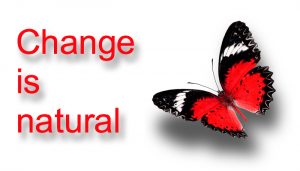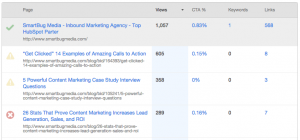— September 4, 2019

When an opinion piece that was skeptical about personality tests appeared in the New York Times recently, I knew I was going to have to write about it, and hoped it wouldn’t be too painful. I don’t like junk science. I accept the principles of evolution, had my kids vaccinated, and work to reduce my carbon footprint. But I regularly flout the published scientific studies and opinions that contest the validity of many personality tests.
Personality profiling has been around in various forms since Ancient Greece. Personality tests employ an array of testing methodologies and formats, from color categories and animal types to four-quadrant schematics and Jungian 16-column typologies. Some have clever category names; others use letters that stand for various descriptive properties. Theoretically, these tests pinpoint what drives you as a person, how you like to work, your strengths, your dark side, and numerous other factors about you.
They Had Me Pegged
When I first took the Keirsey Temperament Sorter (KTS), an assessment used by many organizations that is similar to the somewhat more popular Myers-Briggs Type Indicator (MBTI) and DiSC Profile (Dominance, Influence, Steadiness, and Compliance), I was surprised by its accuracy.
How did the designers of the test know so much about me? How could they describe certain aspects of how I thought so perfectly, or explain how I responded to the world better than I had previously understood myself? I was thrilled with the insights, and immediately talked my husband into taking the KTS so I could see how we compared.
What an eye-opener! We were almost nothing alike! I realized that underlying most of our disagreements and misunderstandings had been my false belief that we operated the same way. Once the assessment revealed his differences, it became much easier to see why he wouldn’t instinctively “get” what was important to me and that we’d need to articulate and negotiate our conflicting views.
We’re All Different Together
This experience prompted me to learn more about the KTS and to use it with work teams to show team members how different they were from each other, and how they could use their differences to work together more collaboratively.
I continue to use the KTS, rather than the MBTI or DiSC. It’s relatively easy to understand and, in my experience, it’s more reflective of the whole person and how they would naturally feel and behave if left to their own devices, rather than how they are at work. The test results are extremely valuable as a prompt for guided discussions: I use them to get employees to talk about themselves in a structured way, and to be open to learning about others — even about colleagues with whom they’re in conflict. Sharing profiles gives people a way to explain themselves while demonstrating that it’s not effective to make self-based assumptions about others.
Data and Decision-Making
These personality tests really just accumulate lots of people’s opinions about themselves and then compare any given individual’s scores to the aggregated data. They don’t account for birth order, stage of life, or socioeconomic status. They also don’t consider whether you had loving parents, were raised in a stimulation-rich environment, had supportive childhood friends, or where you went to school and whether or not you did well there. The tests’ very narrowness makes it obvious that people don’t match the profiles exactly, so the only way to understand and work with colleagues successfully is by getting to know and appreciate them as the unique individuals they are.
But the title of the piece in the Times made explicit the tests’ greatest danger: “To Promote Inclusivity, Stay Away from Personality Assessments.” Too many leaders believe that only certain categories of employees are effective, and they use personality assessments to screen for them, as well as to substantiate their perceptions about certain employees. These leaders often rely on stereotypes and false assumptions to explain why they don’t want to hire or promote certain types of people — for instance, “Introverts can’t do sales jobs,” and “Extroverts can’t do data entry” — but these simplistic categorizations have very little to do with whether people can be successful.
Pseudo-scientific personality assessments should never be used for hiring, job placement, or evaluating job performance, and I’m explicit with clients about that. Similarly, these tests should not be used to affect the security, structure, or compensation of anyone’s job. Nor should they support the idea that only a certain kind of person can succeed in various roles or work with certain kinds of people. That’s a big no-no, and not just for the formal purposes of diversity and inclusion.
Test Results
People should be judged on their actions at work, not their thoughts or preferences. Goodness, you’d be amazed if you knew how many people thought, “Oh, that’s a stupid strategy” and yet went on to contribute to it terrifically, or mumbled to themselves, “I wish I never had to work another project with that scatterbrain again,” yet managed to get the project done and even develop a cordial, mutually reinforcing relationship with the scatterbrain!
Here’s the bottom line for me: Organizations should hire and make assignments based on experience and references, and elevate and compensate based on performance. Assessments shouldn’t be used to rank people, sort people, or funnel people. But they can provide grist for productive discussion and a platform for teammates to gain better understanding of themselves and each other, so they can honor each other’s preferences and work together more effectively.
So I’m not giving up on personality tests just yet. But I’m going on record to try to make sure that they’re not misused.
Business & Finance Articles on Business 2 Community
(96)
Report Post








